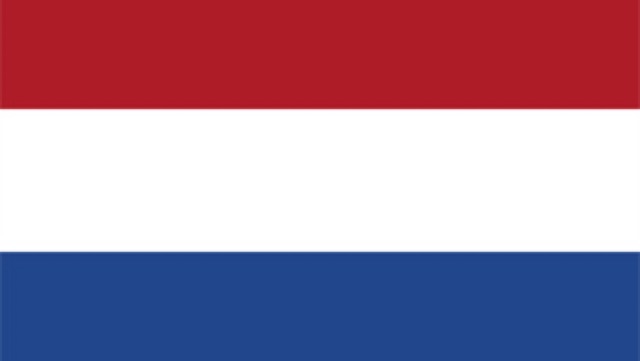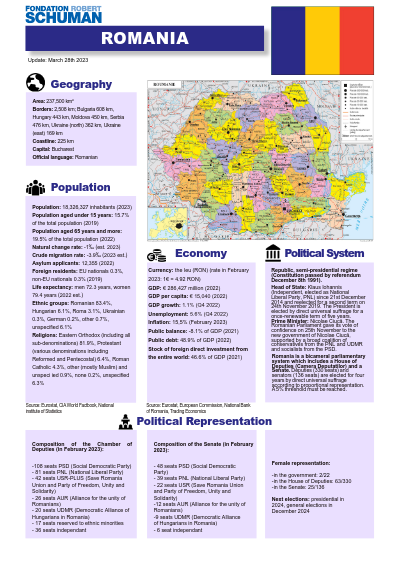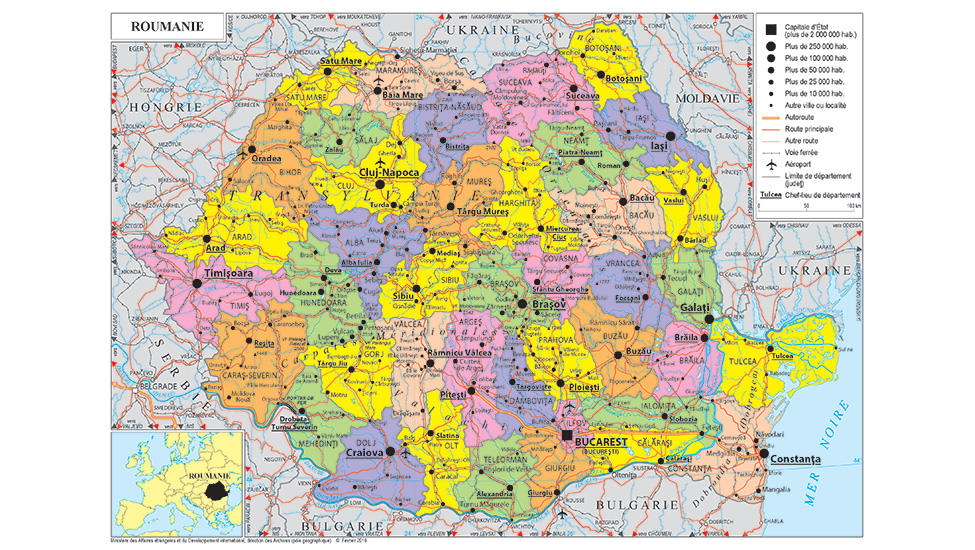
Geography
Area : 237,500 km²
Borders : 2,508 km; Bulgaria 608 km, Hungary 443 km, Moldova 450 km, Serbia 476 km, Ukraine (north) 362 km, Ukraine (east) 169 km
Coastline : 225 km
Capital : Bucharest
Official language : Romanian
Flag
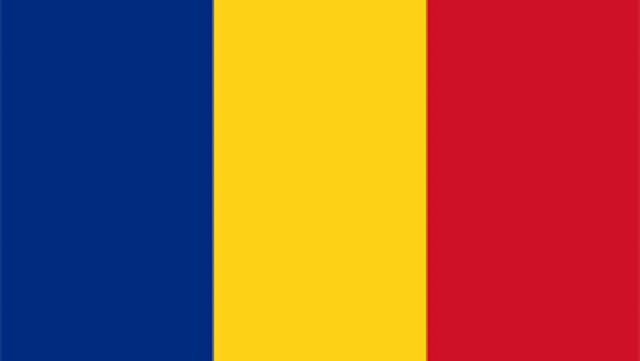
Population
Population : 19,054,550 (Q1 2024)
Crude natural change rate : -7.4‰ (2022)
Population repartition: 15,4% under 15 years old, 22,6% over 65 years old (2024 est.)
Foreign residents: EU nationals 0.3%, non-EU nationals 0.3% (2019)
Crude net migration rate: -3.3‰ (2024 est.)
First time asylum applicants: 10,095 (2023)
Life expectancy: men 76.9 years, women 80.5 years (2024 est.)
Religions: Romanian Orthodox 85.3%, Roman Catholic 4.5%, Reformed 3%, Pentecostal 2.5%, other 4.7% (2021 est.)
Ethnic groups: Romanian 89.3%, Hungarian 6%, Roma 3.1%, Ukrainian 0.3%, German 0.1%, other 0.9% (2021 est.)
Source : Eurostat, CIA World Factbook, National institute of Statistics
Economy
Currency: the leu (RON) (exchange rate December 2025: 1€ = 5.08 RON)
GDP: € 353,821 million (2024)
GDP per capita (PPS): € 13,130 (2024)
GDP growth : 0.8% (2024)
Inflation: 6.5 % (November 2025)
Public debt: 54.8% of GDP (December 2024)
Unemployment: 5.9 % (October 2025)
Stock of foreign direct investment from the entire world: 42.3% of GDP (2022)
Budget balance: -5.6% of GDP (December 2024)
Source : Eurostat, European Commission, National Bank of Romania, Trading Economics
Political system
Republic, semi-presidential regime (Constitution passed by referendum December 8th 1991).
Head of State: Nicușor Dan (proeuropean centrist) won the presidential election on 18 May 2025 and took office on 26 May. The president is elected by diurect universal suffrage for 5 years, renewable once.
Prime Minister: Ilie Bolojan (proeuropean liberal) was appointed Prime Minister on 24th June 2025. The Former President of the Senate, he had assumed the duties of interim president of the country after the resignation of Klaus Iohannis on 12th February 2025 and had formed a government coalition ùade up of four pro-european parties why for the first time the Union Save Romania (USR).
Romania is a bicameral parliamentary system which includes a House of Deputies (Camera Deputatilor) and a Senate: Deputies (330 seats) and senators (136 seats) are elected for four years by direct universal suffrage according to proportional representation. A 5% threshold must be reached.
Political representation
Composition of the Chamber of Deputies (in December 2024):
- 86 seats PSD (Social Democratic Party)
- 64 seats AUR (Alliance for the Unity of Romanians)
- 49 seats PNL (National Liberal Party)
- 40 seats USR (Save Romania Union)
- 28 seats S.O.S Romania (far-right)
- 24 seats POT (Party of Youth People)
- 22 seats UDMR (Democratic Alliance of Hungarians in Romania)
- 18 seats reserved to ethnic minorities
Composition of the Senate (in December 2024):
- 36 seats PSD (Social Democratic Party)
- 28 seats AUR (Alliance for the unity of Romanians)
- 22 seats PNL (National Liberal Party)
- 19 seats USR (Save Romania Union)
- 10 seats S.O.S Romania (far-right)
- 10 seats UDMR (Democratic Alliance of Hungarians in Romania
- 7 seats POT (Party of Youth People)
- 2 seats independant
Women's representations
- in the government: 2/18
- in the House of Deputies: 74/331
- in the Senate: 28/134
Next Elections:
On The Same Theme
Country Sheet
Country Sheet
Country Sheet
Country Sheet
Country Sheet
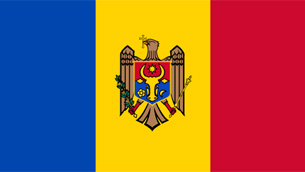
Country Sheet

Country Sheet
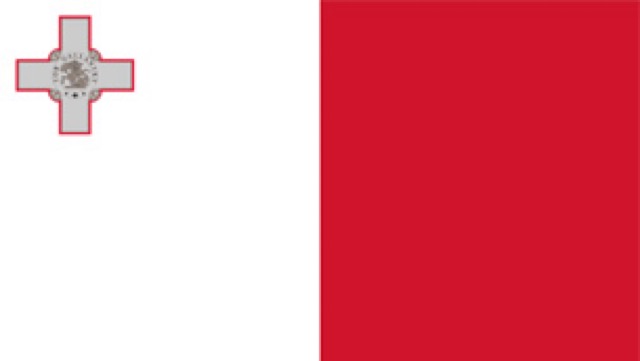
Country Sheet
